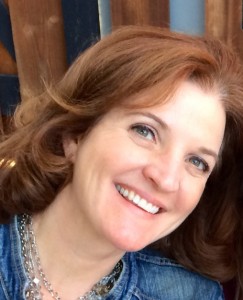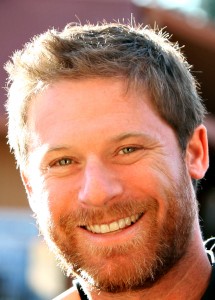Today, SevenPonds speaks with Kira Reginato, a care manager from Creative Counseling. With over 15 years of experience in eldercare management, Kira has directed her own firm, Living Ideas for Elders, and has worked with older adults and their families in several settings, such as hospice and residential care homes. For 5 years, she hosted a radio show, Call Kira About Aging!, in which she offered practical advice on aging, and reassured her listeners that they are not alone in the aging process. In 2010, she won the Petaluma Chamber of Commerce Recognition Award for Excellence in Service to Seniors. Today, she shares her experiences with Creative Counseling.
Christopher: What is Creative Counseling?
Kira: We’re a care management firm. We don’t tend to do one-on-one therapy, though it is a part of what we could do. We are the place to start when someone has an elderly relative, or one with mental illness, and needs to figure out how to take care of them.
We also do therapeutic care management, which means we have a licensed staff with a base of therapeutic knowledge. By understanding family dynamics and the underpinnings of family therapy, we are able to work with family as a whole to set up a system of care and support.
The goal is to make lasting change; we want to get to where we’re monitoring a stable situation rather than getting called in crisis after crisis. We’re different from other forms of counseling because we look at the situation holistically. We call it ‘Creative Counseling’ because our counselors are coming up with really creative approaches and doing whatever our clients’ needs require. It’s not a cookie cutter; the modalities and resources that fit one family won’t fit another. It has to be done with an individual perspective.
Christopher: What kind of support do you provide after a loved one has reached the end of life?
Kira: At that point, if they need individual therapy, we could do that. We help with managing things like selling the house or getting an estate liquidator. Transitional periods are tough on families and they need a lot of support, education and help making hard decisions.
By understanding family dynamics and the underpinnings of family therapy, we are able to work with family as a whole to set up a system of care and support.
Christopher: Could you say something about the inspiration behind Creative Counseling?
Kira: Drew Ross, the founder, is the person I’d ask the question since he started the firm. His inspiration came when he was in grad school and his professor dragged him to an Alziehmer’s daycare center in LA. At first he was not on board – he thought he was going to work with kids and thought “nuh-uh, I’m not going to do that”—but he absolutely loved it. It inspired him to think outside the box to meet the client’s needs by whatever means necessary.
Christopher: Do you have a particular niche or expertise?
It’s not a cookie cutter; the modalities and resources that fit one family won’t fit another. It has to be done with an individual perspective.
Kira: I did a radio show for five years called “Call Kira about Aging”. The podcasts are still available for people that need help with a variety of elder care topics. And I’ve been working with seniors since 1985, though I’ve always known that this is what I’ve wanted do. It is unique to do this therapeutic model and hold the whole family this way, so my role is to introduce the concept to people and explain what Creative Counseling does and how we work.
Christopher: Do you have any stories that might illustrate what it’s like to work with Creative Counseling?
Kira: Once, I got called into a family where the mother had terminal brain cancer and her husband was the caregiver. She had what we call “poor safety awareness”—for instance, she would think she could get up, although she really couldn’t, and then she would fall down. We talked about getting support care to come help her husband by making sure he had the medical equipment that he needed. We learned that even though the family had met several months earlier, they still needed to get a trust done. So I called the attorney that I call regularly for elderly care issues to do the trust. But before the attorney could meet with them, the mother said that she had to go back to the hospital. When someone is losing capacity and health you have to hurry, so I called the attorney and she actually went to the hospital on a Sunday and worked to get that trust finished. We got it in order within a few days—and it was something that the family had wanted to do for months.
Kira’s 3 tips for family members with aging loved ones:
1. Talk with us, or with a professional about how to interview a caregiver if you need help learning what to ask them.
2. Take pictures of the caregiver with the loved one and post them so that your loved one associates his or her self with them and understands who they are and why they’re there.
3. Label all the items you take if you’re going into a care facility.
When the mother left the hospital, I asked for comfort measures and suggested bringing in hospice. Initially, the family had a hard time hearing that, but they then realized it was a lot of help. So I met the family back at the house to get the hospice set up and explained to them that a lot of people would be coming and going. They said “my dad’s already overwhelmed,” and I said “yes but there’s going to be more. You’re going to meet the social worker, the chaplain,” and so on. I did what we call ‘managing their expectations’ and by assuring them that it’s going to be hard, but ultimately this team is going to take good care of their mother.
I also made sure we got a really comfortable chair the in bedroom so that the husband could sit by her. We also got a video monitor for her husband who was hard of hearing. He could bring the monitor out to the living room when he watched the ball game or when he was on his computer. That way, he could see her sleeping without having to go back and forth to check and see if she had been calling for him.
Because of her brain tumor, the mother was having a hard time speaking, so I talked to her daughter about having her grandkids make a communication board, where they pasted pictures for their grandmother to point to what she wants to say rather than speak it. Then, I brought a book about a man who lost his wife to cancer. I said that this is probably hard reading, but you might find yourself in a similar situation. He read the first page to her and said they cried and cried and were not going read the rest of it. The bottom line is, they got tears out. It’s not about reading the full book—it’s about acknowledging the reality, feeling it and getting some of it out. They had Christmas a week early; everyone came and she said it was the best day of her life.
That’s just one way we helped to support this family in their particular situation. It’s very meaningful work and it’s big. You’re not just handling a little piece, such as healthcare. You’re working with the whole family.
Christopher: Is there anything else you would like our readers to know?
Kira: Don’t reinvent the wheel by yourself. Consultations are free and we can figure out if we can help and how.
Christopher: Thanks so much for speaking with us today.
Kira: Of course, thank you!
More from Professional Advice:
- How Can Learning the Harmonica Help the Elderly? An Interview with Bill Fried
- What does Alzheimer’s mean for family and friends? An Interview with Cadmona Hall
- How Can We Support the Aging and Elderly? An Interview with Andrew Gaines

 What is Elder Therapeutic Care Management? An interview with Kira Reginato
What is Elder Therapeutic Care Management? An interview with Kira Reginato




 First the Wealth Gap, Now the U.S. Has a Growing Health Gap
First the Wealth Gap, Now the U.S. Has a Growing Health Gap

 Our Annual Seven Holiday Gifts for Someone Who Is Grieving, 2024 Edition
Our Annual Seven Holiday Gifts for Someone Who Is Grieving, 2024 Edition














